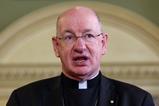The tragic death of One Direction’s teen pop sensation reminds us that fame and fortune cannot meet our deepest human needs, says Tony Wilson. That can only come from being fully known by Jesus

The family, friends and fans of Liam Payne are reeling from the news of his sudden, tragic and senseless death last week.
On the surface, we have another story of a life cut woefully short and a star struggling to cope with money and fame. It is a truly difficult place to find oneself at such a young age. Having more money than most of us see in a lifetime while surrounded by people whose only goal is to ride the wave of your celebrity status is a toxic mix.
Payne, a talented, gentle and kind character by all accounts, seemingly spent his final hours in some distress. Reports of him searching his hotel lobby for anyone who could validate him as a star are heartbreakingly reminiscent of a universal longing that we can all relate to, along with many other performers whose song lyrics ache with the same sentiment; a need to be genuinely loved.
Searching for more
Social media drives aspiring influencers’ desire to be noticed. Will I be one of the few who rise to the top of this slippery heap, they ask. Or, more anonymously, as the author Bruce Marshall noted in The World, The Flesh and Father Smith, (Houghton Mifflin): “The young man who rings the bell at the brothel is unconsciously looking for God.”
We all have a hunger for deep relationship that can only find its ultimate fulfilment in God. But, in the absence of that divine connection, the human condition drives us to satisfy our appetites with things that can never truly satisfy.
The desire to be recognised by others falls away when we understand God loves us
This is why we spend so much of our lives searching, even for those of us who have found the genuine source of all love. We are prone to think that there may be better ways of filling the longing of our hearts. Surely this hunger points us somewhere.
Encountering God
If the final resting place of our hearts is to be in profound communion with God, we should examine the encounters people had with him when he took on flesh and dwelt among us.
The Gospel accounts of the encounters people had with Jesus are revealing. It’s true that many people didn’t trust that he could provide what they were looking for, but many more reoriented their whole lives around this mysterious Messiah.
The Samaritan woman at the well, ostracised by her own community, correctly sensed that Jesus knew her and loved her despite her failings (John 4). Zacchaeus, who humiliated himself by climbing a tree just to see Jesus, had his life turned upside-down (Luke 19:1-10). The apostles left the security of their jobs to become his wandering disciples (Matthew 4:18–22).
Perhaps all these people tried to find love in all the wrong places and knew how corrosive their search had been. Whatever the story that led them to follow Christ, they all sensed that he offered a deeper fulfilment than they could ever find elsewhere.
A wide open life
The early moments in our relationship with Jesus give us a taste of things to come. We are intrigued, sometimes confounded, but always drawn out of ourselves into a more expansive way of life. Our horizons widen as we begin to receive a love like no other. The things that once preoccupied us, such as worldly success, recognition, material gain - not necessarily bad in themselves but with power to corrupt - become less and less significant to us.
In short, we learn that the preoccupations which derail lives like Liam Payne’s are of no ultimate consequence. Therein lies the real tragedy of a life lost for no higher purpose.
We are prone to think that there may be better ways of filling the longing of our hearts
The apostle Paul encountered Christ so profoundly on the road to Damascus that his life would never be the same again. As far as we know, Paul never met Jesus before the ascension but his relationship with the Lord was deep and profound. So much so that he could write: “For now we see in a mirror, dimly, but then we will see face to face. Now I know only in part; then I will know fully, even as I have been fully known” (1 Corinthians 13:12).
While Paul knew that he had only the faintest grasp of the fullness of life that God was calling him into, he understood that he had been “fully known”. The desire to be recognised by others falls away when we understand that God knows us and loves us completely. God draws us into a future when we will be able to endlessly reciprocate this love.
In his final solo single, ‘Teardrop’ Payne wrote: “I don’t know how to love you / When I am broken too.” Our brokenness is the starting point of the gospel, where we find the capacity to fully love only when we allow God to love us first.





































1 Reader's comment